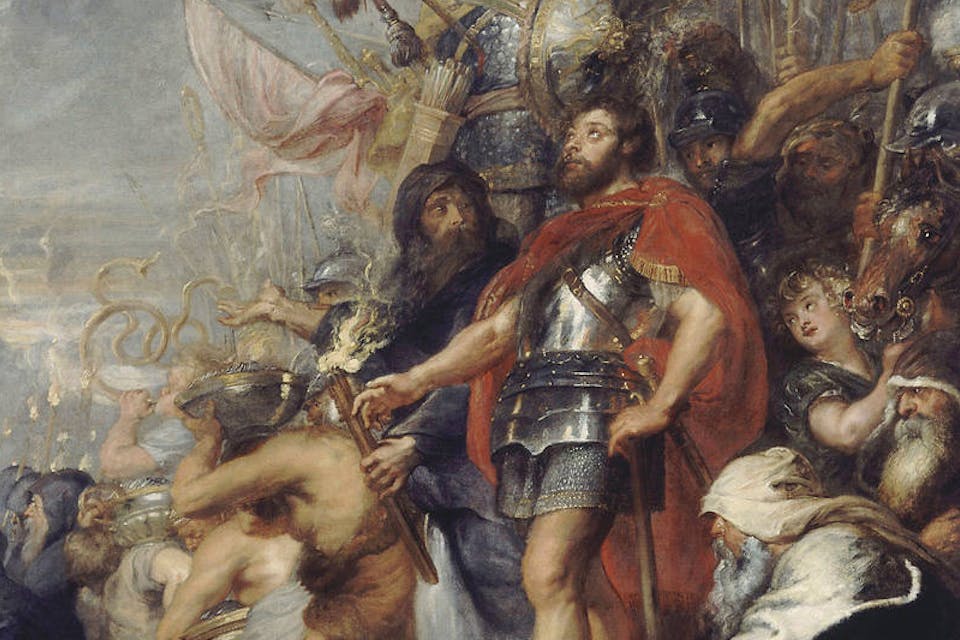
December 6, 2017
Judah the Maccabee, Judah the Mace-Man
By PhilologosA modest suggestion for a new way of thinking about the original meaning of the word "Maccabee."
Got a question for Philologos? Ask him directly at philologos@mosaicmagazine.com.
Hanukkah, the celebration of the victory of the Maccabees, is here again, and with it the old conundrum of what the word Maccabee originally meant. Here’s a modest suggestion for a new way of thinking about it.
First, though, I should point out that the use of the word “Maccabees” for the successful 2nd-century-BCE Jewish rebels against Syrian Greek rule derives from a misunderstanding. At the time of their uprising, there were no Maccabees. They and the royal house they established were known to their Hebrew- and Aramaic-speaking compatriots in Palestine as the Ḥashmona’im, the Hasmoneans, after the revolt’s first leader, Matityahu ha-Ḥashmona’i, whose five sons headed it after his death. The source of “Hasmonean” is uncertain; most likely Ḥashmona was the name of either an ancestor in Matityahu’s family or of a place from which the family hailed.